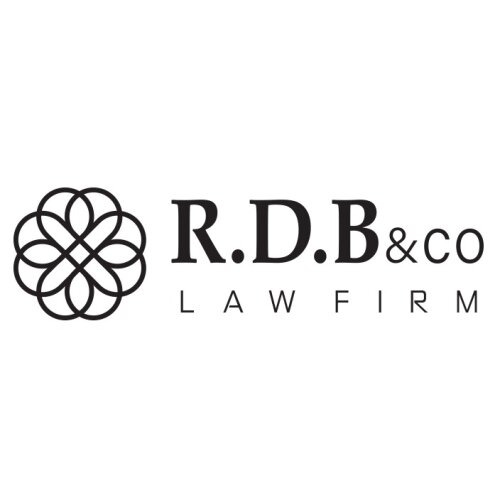Best Divorce & Separation Lawyers in Petaẖ Tiqwa
Share your needs with us, get contacted by law firms.
Free. Takes 2 min.
Free Guide to Hiring a Family Lawyer
List of the best lawyers in Petaẖ Tiqwa, Israel
About Divorce & Separation Law in Petaẖ Tiqwa, Israel
Divorce and separation in Petaẖ Tiqwa, Israel, involve navigating a complex legal landscape, influenced by both civil and religious laws. The Israeli legal system requires that Jewish divorces be processed through rabbinical courts, while civil matters related to divorce, such as property division and custody, may also involve family courts. The process can be emotionally challenging and legally intricate, necessitating a nuanced understanding of both civil and religious statutes.
Why You May Need a Lawyer
There are several common situations where individuals in Petaẖ Tiqwa may require legal assistance for divorce and separation:
1. **Complex Property Division:** When spouses have considerable assets, including real estate, businesses, or investments, legal guidance is crucial for equitable distribution.
2. **Child Custody and Support:** Determining custody arrangements and child support can be contentious and require legal expertise to ensure the best interests of the child are met.
3. **Alimony Issues:** Establishing fair spousal support requires a thorough understanding of local statutes and precedents.
4. **International Divorces:** If one spouse lives outside Israel, international law may complicate proceedings.
5. **Domestic Violence:** Victims of domestic violence need legal support to navigate protective orders and ensure their safety during divorce proceedings.
Local Laws Overview
Key aspects of divorce and separation laws in Petaẖ Tiqwa, Israel, include:
1. **Rabbinical Courts:** In Israel, Jewish couples must obtain a religious divorce (Get) through a rabbinical court. Without a Get, a woman cannot remarry within the Jewish faith.
2. **Family Courts:** Civil matters, such as child custody and property division, are handled by the family courts. These courts also have jurisdiction over non-Jewish couples and issues not resolved by the rabbinical courts.
3. **Equitable Distribution:** Israeli law follows the principle of equitable distribution, where marital property is divided fairly, though not necessarily equally.
4. **Child Custody:** Courts prioritize the child's best interests and can award various forms of custody, including joint, sole, or primary physical custody, with flexible visitation arrangements.
5. **Spousal Support:** Alimony decisions consider the length of the marriage, each spouse's earning capacity, and their standard of living during the marriage.
Frequently Asked Questions
1. How do I file for divorce in Petaẖ Tiqwa?
You must file a petition at either the rabbinical court for a religious divorce or the family court for civil matters. Legal counsel can guide you through the process.
2. What documents are needed for a divorce?
You will need your marriage certificate, identification documents, financial records, and any prenuptial agreements.
3. How does the court determine child custody?
The court assesses the child's best interests, considering factors like parental involvement, financial stability, and the child's wishes, depending on their age.
4. What is a Get?
A Get is a religious divorce decree required for Jewish couples. Both spouses must consent before it is granted by the rabbinical court.
5. Can I get divorced without my spouse's consent?
Obtaining a divorce without mutual consent can be challenging, especially for a Get. Legal alternatives and compelling reasons must be demonstrated in court.
6. How are assets divided in a divorce?
Assets acquired during the marriage are subject to equitable distribution. Courts consider each party's contribution and future financial needs.
7. What if my spouse lives abroad?
International divorces require navigating both Israeli and foreign legal systems. Specialized legal advice is essential to handle jurisdictional issues.
8. How long does the divorce process take?
The timeline varies depending on the complexity of the case, court schedules, and the level of agreement between spouses. It can range from several months to over a year.
9. Do I need a lawyer for mediation?
While mediation aims to resolve issues amicably, having a lawyer can protect your interests and help facilitate fair agreements.
10. What support is available for domestic violence victims during divorce?
Victims can seek protective orders and may receive legal aid. There are also shelters and support organizations that provide assistance and resources.
Additional Resources
Here are some helpful resources for those seeking legal advice on divorce and separation in Petaẖ Tiqwa, Israel:
1. **Ministry of Justice:** Provides information and resources on family law and legal aid.
2. **Israeli Bar Association:** Offers a directory of qualified family law attorneys.
3. **WIZO (Women's International Zionist Organization):** Provides support services for women and children affected by domestic violence.
4. **Local Rabbinical Courts:** For assistance with religious divorces and related queries.
Next Steps
If you need legal assistance with divorce and separation in Petaẖ Tiqwa, Israel, consider the following steps:
1. **Consult with a Lawyer:** Seek a consultation with a family law attorney to understand your legal options and rights.
2. **Gather Documentation:** Collect all relevant documents, including financial records, identification, and evidence (if applicable).
3. **Explore Mediation:** If possible, consider mediation to amicably resolve disputes and expedite the process.
4. **File Necessary Petitions:** Work with your lawyer to file petitions in the appropriate court(s).
5. **Seek Support:** Utilize available resources for emotional and practical support throughout the process.
Understanding your rights and options can significantly impact the outcome of your divorce proceedings. Legal guidance ensures that your interests are protected and helps you navigate this challenging period with greater confidence.
Lawzana helps you find the best lawyers and law firms in Petaẖ Tiqwa through a curated and pre-screened list of qualified legal professionals. Our platform offers rankings and detailed profiles of attorneys and law firms, allowing you to compare based on practice areas, including Divorce & Separation, experience, and client feedback.
Each profile includes a description of the firm's areas of practice, client reviews, team members and partners, year of establishment, spoken languages, office locations, contact information, social media presence, and any published articles or resources. Most firms on our platform speak English and are experienced in both local and international legal matters.
Get a quote from top-rated law firms in Petaẖ Tiqwa, Israel — quickly, securely, and without unnecessary hassle.
Disclaimer:
The information provided on this page is for general informational purposes only and does not constitute legal advice. While we strive to ensure the accuracy and relevance of the content, legal information may change over time, and interpretations of the law can vary. You should always consult with a qualified legal professional for advice specific to your situation.
We disclaim all liability for actions taken or not taken based on the content of this page. If you believe any information is incorrect or outdated, please contact us, and we will review and update it where appropriate.












